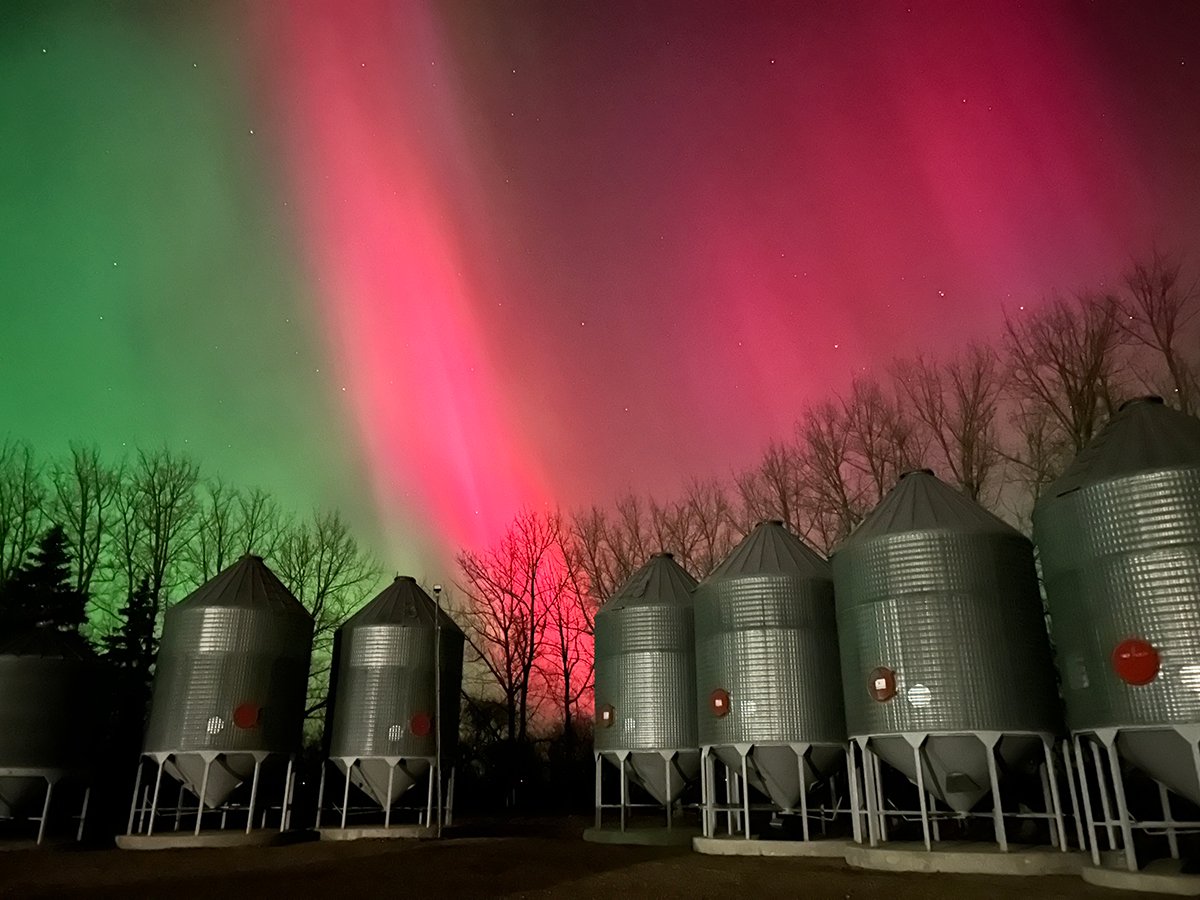Low North American potato prices and the wrong potato varieties led to the failure of Lake Diefenbaker Potato Corporation, say people close to the company.
Growers say rapid expansion also played a role.
Last week creditors found out what effect the depressed market and a “few poor choices” will have on them.
“There will not be enough (money recovered) to cover the money owed to secured creditors,” said Ian Schofield, a vice-president of KPMG, and bankruptcy trustee for the potato corporation.
Trustees say up to $35 million was invested by or owed to local residents in the Lucky Lake area of south-central Saskatchewan, government organizations, banks and local and American suppliers.
Read Also

Powerful solar storm lights up night time sky
Prairie skywatchers have been on high alert the last few nights as spectacular aurora displays have made the night time…
Of that money, provincial and federal government agencies are owed $26.5 million, almost all of which is secured debt. Sask Water is a major investor with $8 million of that amount, not including a $2.4 million debenture. The Farm Credit Corporation is owed $8.1 million and the Royal Bank another $8 million.
Those debts are secured to specialized buildings and equipment, as well as remaining inventory from last season. Without an established potato industry in the area, the structures and their component parts carry only a fraction of the value they did as an operating company. Selling them into a depressed market will further undermine their price, say investors.
“This is a valley and peak business. We’re in a valley. Those who have been in the business expect those valleys and plan for them,” said an official from an east coast potato growers association. That official wanted to remain anonymous because the Lake Diefenbaker failure may affect meetings planned with American and prairie producers who were hurt by the closure.
Officials from eastern potato boards suggest the effect of the bankruptcy will be felt in the United States and the Americans may be wary of the Canadian industry for a few years. More than $600,000 was owed to seed potato growers in North Dakota and Montana that will probably never be collected.
The potato variety chosen for much of last year’s production was Ranger, a russet potato developed for the fresh table market and for frozen food processing. Ranger was the second most popular variety for Alberta and Saskatchewan seed growers in 1998, according to provincial seed growers’ variety lists.
“There is little market for the Ranger this year and that is at least half of the problem,” said bankruptcy trustee Schofield. “Even if the price was up, the company would still be in trouble. If they had the right variety they may even still have had this problem. The two together made it impossible.”
Off to market
The remaining inventory will be processed until the end of June when all of the best product will have been “fresh packed” for retail markets. The remaining potatoes not sold as seed will be moved into the bulk market.
Unsecured creditors, who hold about $5 million worth of the outstanding debt, will not collect their bills, say officials with KPMG. Others not part of the secured creditor arrangements include some agricultural chemical dealers, trucking companies, aerial spraying contractors and the town of Lucky Lake.
Mayor Barry Alm is an employee of the LDPC. He says the $9,500 water bill from the fresh pack plant will be lost. Construction on a 400,000-litre cistern will continue but it will be harder to pay.
John Knost, a potato grower at Outlook, Sask., said: “This is a black eye for our business. A black eye for potatoes in Saskatchewan. (Saskatchewan potato growers) have worked hard to build up our business and overnight these greenhorns let everyone know to stay away from us. Just great.”
Knost said many established growers feel the project got too big, too fast and failed due to a lack of planning for marketing.
Maynard Sonntag, minister in charge of Sask Water, says the province believes its “maximum risk is still about $8 million.
“We sure hope we don’t lose the whole thing, but are prepared for that amount. We (the province) could end up owning some buildings but it is still our plan to sell, get out of the business in the future. We think there is a future for growers and processors here and this is only a setback,” said Sonntag.














